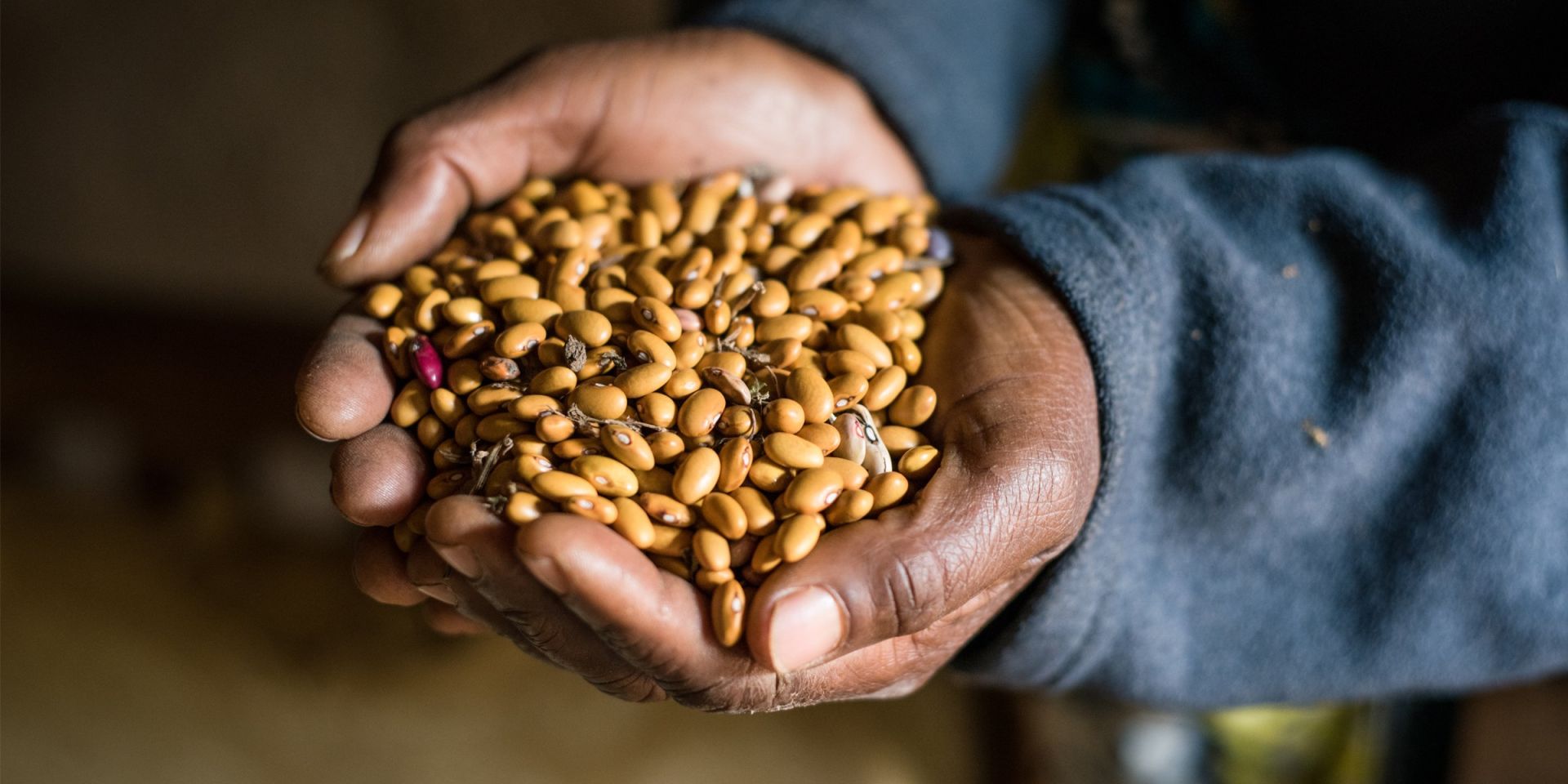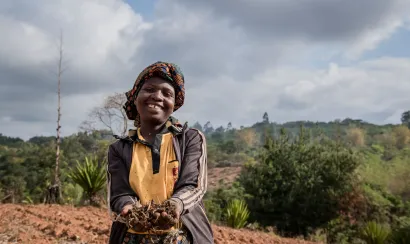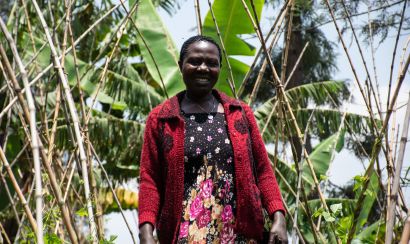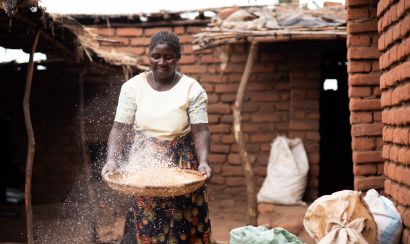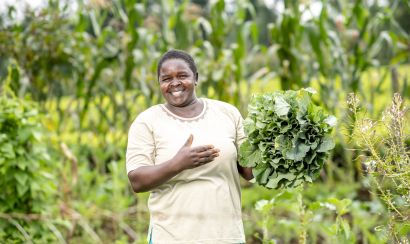From Beans to Bachelor's Degrees in Burundi
Meet Pascaline Ntangyungwi
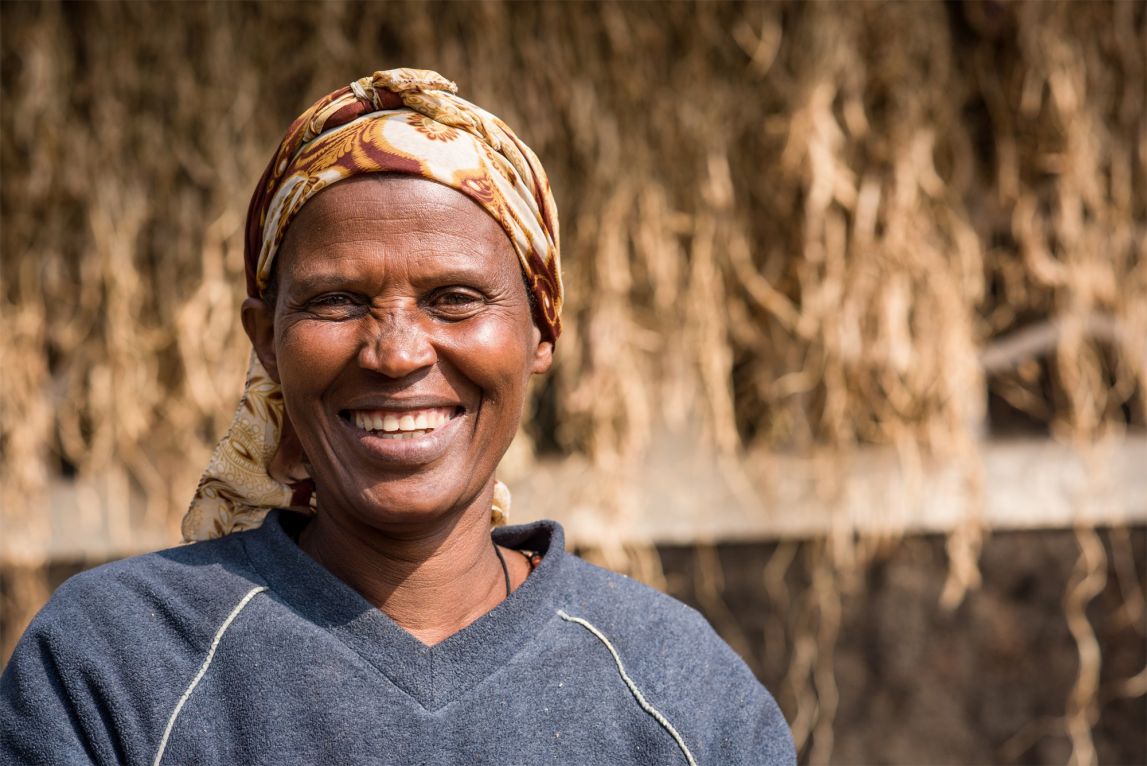
She had little left to lose. Most years, smallholder farmer Pascaline Ntangyungwi would only harvest marginally more than the amount of seed she planted. Without any other income source, she found her poor harvests not only translated into hunger, but a failure to provide the education she had envisioned for her seven children.
“For years we couldn’t even harvest enough to last one month because we didn’t know how to plant well,” Pascaline says. “It was also so difficult to get fertilizer. We’d travel far to buy it, and often the shops would run out… If I got to the shop and there wasn’t any fertilizer left, I would plant without it because I couldn’t afford to wait.”
Pascaline recounts walking two hours, mostly on mountainous footpaths, to the nearest shop in the Burundian countryside where she might be able to buy fertilizer, and then often leaving empty-handed with a heavy heart knowing her harvests would suffer. She would then plant by scattering her seeds at random and hope somehow she might harvest more than the year before.
Then, four years ago, she heard news that promised to change her agricultural practices and possibly more. Her neighbors told her about a new company that had arrived in Burundi and was coming to their village. Pascaline took note because she heard the business would deliver fertilizer near her house and provide trainings on how to use it. After attending a meeting, Pascaline enrolled with One Acre Fund.
That year, Pascaline bought fertilizer on credit, which she was able to pick up just a 15-minute walk from her front door. She also took time to measure the spacing between her rows, between each seed as she planted, and the amount of fertilizer she used. Though the process overall was a bit more time-consuming upfront, Pascaline says it paid off.
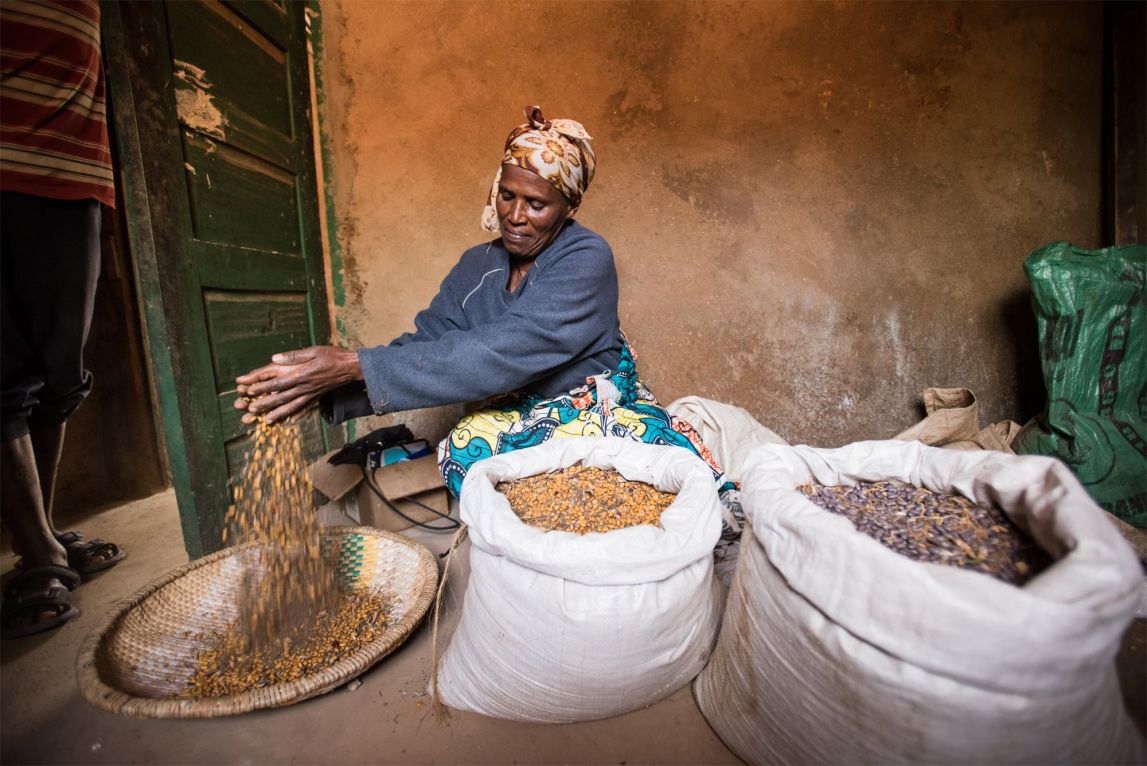
In 2012 she harvested, 880 pounds of beans—more than double any other harvest she had ever produced on her land.
“I felt so happy about having food for my family,” she says. For the next few years, Pascaline continued to harvest well and started to dream.
Now, Pascaline is a proud mother. At 54, her oldest children are in their early 20’s and 30’s and her youngest are approaching high school. She and her husband never continued their education past elementary school, and she had always wanted better for her children.
Each year, Pascaline would save a portion of her harvest for food, and then sell some to support her older children in pursuing advanced educations. In 2015, she even chose to invest in more land so she could increase her revenue further.
“I bought the land with one intention: to increase my production,” Pascaline says.
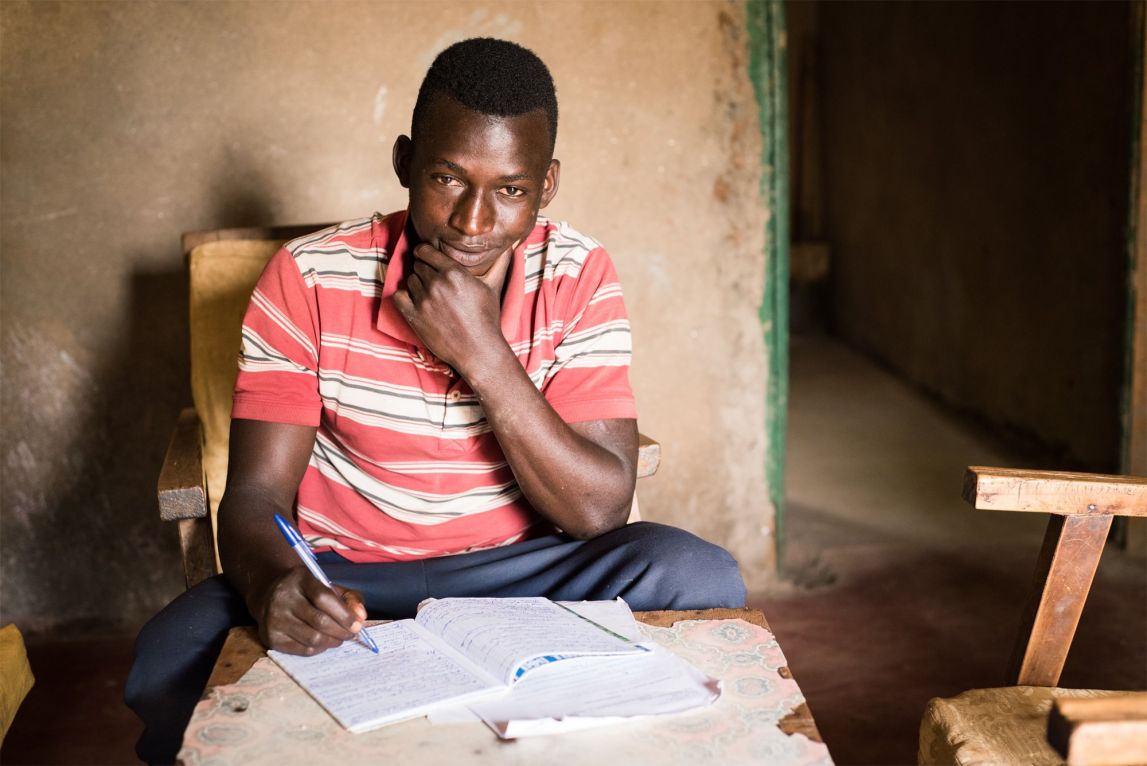
Today, two of Pascaline’s sons are in university in the country’s capital, Bujumbura. Norbet, 25 years old, is training to be a civil engineer, and Yves, 21, is studying math. Her younger children also now grow up with the expectation that they too will go to college. This is something Pascaline feels especially proud of.
“It would not have been possible for my children to attend university before because we had poverty,” she says. “Now we have so much, and I have pride.”
